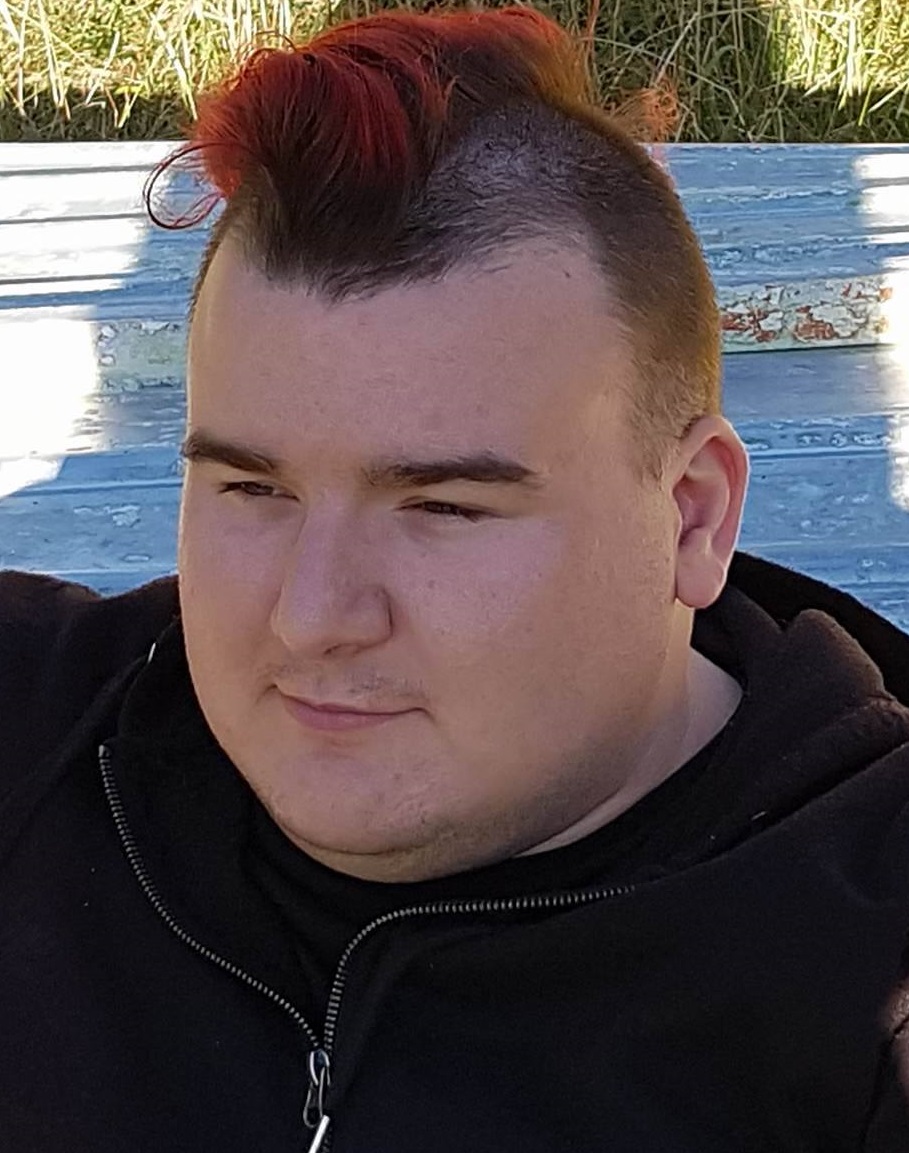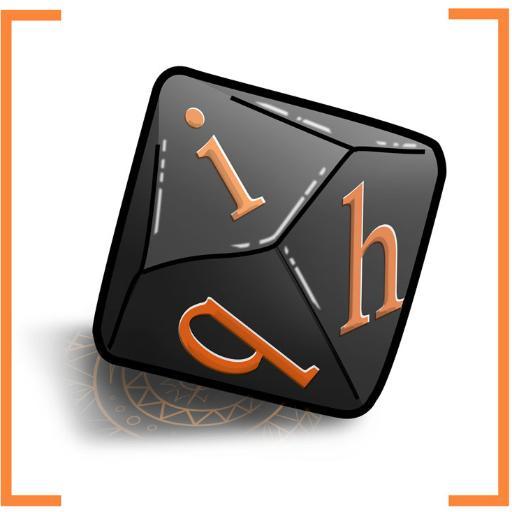Raymond Cox

- Role: Founder, editor, creative lead
- Company: Array
- Location: Newcastle, Australia
We chatted with Ray, the founder, editor, and creative lead for [insert quest here] podcast.
QRM: Can you tell us a little bit about who you are and what you do in the games industry?
Ray: Of course! I make ‘Actual Play’ podcasts, which is similar to a let’s play except it's normally for collaborative story games, and normally has no visual component. It's just an audio recording of people telling a story to one another through the medium of role-playing games.
A lot of what I do at [IQH] is running RPGs for people or playing in others’ games. But more than that, I also have to direct game play in such a way that it makes good listening; this normally involves keeping people focused on the game, and cutting off table chatter. I also do all the actual audio editing for our podcast, and most of the social media work.
QRM: How long have you been involved in the game industry, and what projects have you worked on? What are you working on currently?
Ray: I've been making [insert quest here] since mid-2014, and started releasing content later that year. Pretty much from the moment I started on it, I knew it was something I wanted to do professionally. Prior to that I'd mostly just been a fan of gaming; this was really my first attempt to get involved... I also had no background in editing or recording so I had to learn everything as I went.
Recently though I actually started working on my first RPG: a table top game about demi gods fighting social injustice. The working title is Weapons Of The Divine. I'm planning to use the FATE Accelerated rules.
QRM: What inspired you to get started in the games industry?
Ray: Actually was a combination of 3 factors: my father passing away, discovering Role Playing Public Radio, and my local player group getting large enough to sustain multiple campaigns.
Last two are kind of obvious. More players means we can run more games, and we can also run different types of RPGs because we don't need to cater to everyone. You just say, "Hey, I'm running a sci-fi horror campaign, does anyone want in?" You don't feel bad for leaving people out because they can play in the other campaigns that are running.
RPPR was another Actual Play podcast; they have a slightly different tone to us. They've actually inspired quite a few AP podcasts of varying types.
Which I guess brings us to my dad passing away. He died in late-2012, and after that I had a lot of trouble supporting myself. I went through a few underemployment situations, and even tried going to uni. After a while I realised I was probably going to be poor for a long time... and if I'm gonna be poor, I might as well be poor and doing what I love. So I started... a prop making business. Which went nowhere. And then I started the podcast... and it's doing much better.
QRM: In what ways do you feel your experiences as a queer person manifest in the games you work on, and influence the work you do?
Ray: We often end up including queer representation in our work at [IQH], almost by accident. It just creeps in, to be honest.
Sometimes we make active attempts to include those characters and their stories, like in our Base Raiders series we had demon from hell player-character who was also a lesbian, and we had them form a somewhat lovely relationship with an non-player-character from another Base Raiding team.
More often though it happens like in our Apocalypse World campaign where non-binary characters, trans characters, and poly characters just kept coming up... Granted, that campaign did include a PC that was the owner and MC for an erotic dinner theatre. That character was a transman I believe... and disabled I think.
And the RPG I'm working on actually evolved out of a desire to have something like Wolfenstein or Inglourious Basterds, where the the heroes were queer resistance fighters. I ended up making the call to have a slightly broader scope, but still: you play as divine social justice warriors, empowered by the gods to change society and fight for the oppressed.
QRM: Do you have a favourite queer character—in games or media more generally? If so, what is it about them that makes them your favourite?
Question asked by @kamienw.
Ray: Look, I'll probably have to go with Jason Todd (aka the 2nd Robin, or Red Hood) as a bi character I've always really connected with... but as for one from a game? I'm struggling to think of one from a game that wasn't a character I made for an RPG campaign. 😛
QRM: Have you ever encountered roadblocks in trying to include queer characters in games? What do you think is preventing greater diversity within games?
Question asked by @dustinalex91.
Ray: Look, I've thankfully never really had a problem with this. Only thing even close is that I've stopped myself playing some queer characters cause I felt I didn't have the knowledge to portray them in a way that I felt would be genuine and not just play up stereotypes.
I think that for some that is the problem: they don't know how to write those characters. The solution, of course, is to talk to people from those communities.
More broadly though, I think the real barrier is that people fail to envision queer identities as more than just gross stereotypes. And they don't want to learn, because they are fine with their ignorance.

QRM: Why do you think it is important that queer audiences are able to see themselves represented in the games they play, and in the developers who make the games they see? What can we do to improve the industry for queer audiences and devs?
Ray: It's important for people to know they aren't alone, that they don't walk a path without a guide. It's important for them to see that they can be anything they want. They can be amazing performers, they can be brilliant heroes, they can stand up to oppression and violence. And that there are people out there in the world that will help them achieve that goal by sharing how they did.
What can we do for them? Share what you know. "trade secrets" and hidden knowledge doesn't strengthen your business. Secret recipes are, in my opinion, a bad idea. Teach others your skill set, offer them a helping hand where you can. We have to help each other... it's really the only survival skill humans have that's worth a damn.
Also, sharing what queer creators make. Tell your friends about the gay punk band you found online, or the bi podcaster; amplify your creators’ reach by telling other people. Word of mouth advertising is far more important than Facebook ads.
QRM: Have you ever mentored somebody in your role in games, or been mentored? If so, what made these experiences worthwhile for you?
Question asked by @pepelanova.
Ray: I recently started taking part in GM workshops at my local games store. The second one is actually on my birthday later this month. Mostly its open discussion scenario design. We break the attendants up into multiple groups with one of our veteran GMs guiding the conversation. At the first one, it was very reassuring to see such open-minded and accepting people joining in our hobby; game stores don't really have that reputation and I was quite pleased with what I saw.
QRM: In what ways can non-queer folk increase and support queer diversity present within games, as well as in the industry more broadly? How can we all work to support intersectional approaches to diversity, and why is this important?
Ray: Look, talk to people. Get to know them, be polite and genuine. Share queer stories and content with your friends (as I said earlier). It's important to know that you are not expected to know everything, or at least I don't expect that.
Knowing about other people’s lives and communities will only strengthen us all.
There is an idea that we use to talk about when I was involved more with martial arts. "Draw water from many wells." Studying other martial arts would often offer new insight into your main area of training. For example Karate ended up improving how my Viking sword-and-shield work performed. There is so much knowledge out there; you might be surprised what you learn.
QRM: Is there a message that you would like to share with the queer game players, game studies researchers, and other interested folks who comprise the Queerly Represent Me community?
Ray: I mostly have a message for young queer people like myself.
Be the best you that you can be in this moment in time. Speak up for what you believe in. Give yourself permission to fail, and try new things. Know that you are a beautiful person, and that there are people out here that want you to be happy in life.
And to those of you that can't be out yet, I want you to know that I will be your voice and your shield where ever I can be.
For other bisexuals, know that you DO belong here. Your identity is valid. You are queer enough, and you deserve to be in these spaces.
*
You can find Ray on Twitter.
You can listen to [insert quest here] on Wordpress, Soundcloud, and iTunes, and you can follow them on Twitter and Facebook.
